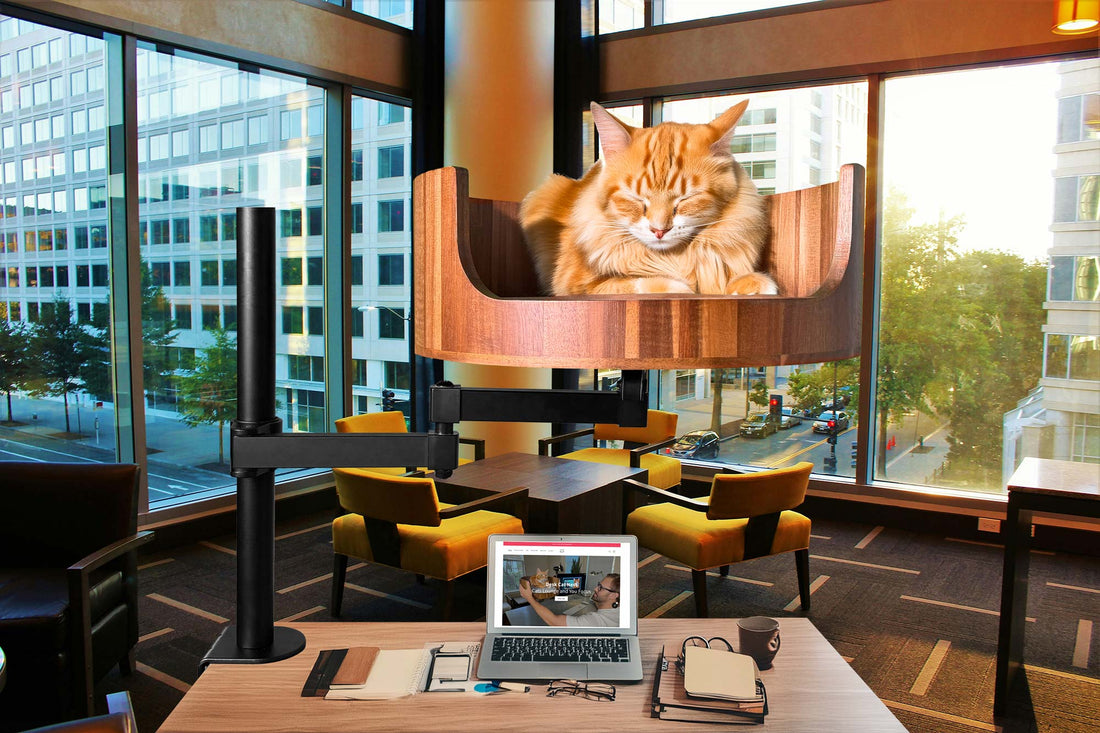
Why My Dog Eat My Cat Poop: Understanding the Behavior
Share
Do you find yourself constantly catching your dog eating your cat's poop? You're not alone. This unsavory habit, known as coprophagia, is a common behavior observed in many dogs. While it may seem repulsive to us humans, there are actually several reasons why dogs engage in this behavior. From nutritional deficiencies to behavioral issues, understanding why your dog is eating cat poop is crucial in addressing and correcting this habit. In this article, we will delve into the reasons behind why your dog may be indulging in such behavior and provide tips on how to prevent it from happening.
One possible explanation for why dogs eat cat poop is due to their ancestral instincts. In the wild, dogs would scavenge for food, including feces, as a means of survival. Another reason could be related to stress or anxiety, causing your dog to exhibit unusual behaviors such as coprophagia. By identifying the root cause of this behavior, pet owners can take proactive steps to address the issue and prevent any potential health risks associated with it. Stay tuned as we explore the complexities of coprophagia and provide helpful strategies for deterring your dog from snacking on your cat's litter box treasures.
1. Dogs are naturally attracted to cat feces due to its high protein content, which mimics the smell of their preferred food sources in the wild.
2. Eating cat poop can be harmful to dogs as it can contain parasites or harmful bacteria, leading to health issues.
3. Environmental factors, such as stress or boredom, can contribute to this behavior in dogs.
4. Properly managing litter boxes and providing mental and physical stimulation for dogs can help prevent them from eating cat feces.
5. Consultation with a veterinarian may be necessary if this behavior persists, as it could indicate an underlying health issue in the dog.
Why Dogs Eat Cat Poop
Dogs eating cat poop is a common behavior that can be perplexing for pet owners. There are several reasons why dogs exhibit this behavior, including the biological makeup of cats' waste, curiosity, attention-seeking behavior, and even potential health issues. Understanding the underlying reasons can help dog owners address this issue effectively.
The Biological Attraction
One possible reason why dogs eat cat poop is the biological attraction to the feces. Cats' waste contains proteins and nutrients that may be appealing to dogs, especially if they have a protein deficiency in their diet. Dogs may also be attracted to the smell of the cat's waste due to the presence of undigested food particles.
Curiosity and Behavioral Reasons
In some cases, dogs may eat cat poop out of curiosity or boredom. Dogs are curious animals by nature, and they may see cat poop as an intriguing treat to investigate. Additionally, if a dog is feeling neglected or under-stimulated, they may resort to eating cat poop as a way to seek attention from their owners.
Potential Health Issues
While occasional consumption of cat poop may not always be harmful to dogs, repeated ingestion can lead to health issues such as intestinal parasites or bacterial infections. It is essential for pet owners to monitor their dog's behavior closely and consult with a veterinarian if they notice any signs of illness or digestive problems.
Preventing Dogs from Eating Cat Poop
There are several strategies that dog owners can use to prevent their pets from eating cat poop. These include managing the environment to restrict access to the cat litter box, providing adequate mental and physical stimulation for the dog, and ensuring that the dog's diet is well-balanced and meets their nutritional needs. Consistency in training and positive reinforcement can also help discourage this behavior.
Desk Cat Nest FAQ
Why does my dog eat my cat's poop?
Many dogs eat cat poop out of curiosity or because they are attracted to the scent. It could also be a behavioral issue or result from a nutritional deficiency in their diet.
Will using a Desk Cat Nest help prevent my dog from eating my cat's poop?
While a Desk Cat Nest may deter your dog from accessing the cat's litter box, it is not a foolproof solution. It is still important to address the underlying reasons why your dog is eating the cat's poop.
Can I train my dog to stop eating the cat's poop without using a Desk Cat Nest?
Yes, training your dog to not eat the cat's poop is possible through positive reinforcement, redirection, and ensuring they have a balanced diet. Using a Desk Cat Nest can be an additional tool to help in this process.
How do I clean the Desk Cat Nest if my dog manages to access it?
If your dog does manage to access the Desk Cat Nest, it is important to clean it promptly to prevent any health issues. Use pet-friendly cleaning products to disinfect the area and discourage your dog from repeating the behavior.
Is the Desk Cat Nest safe for both my cat and dog?
The Desk Cat Nest is designed to be a safe and comfortable space for your cat while also serving as a barrier for your dog. However, it is important to supervise your pets' interactions and monitor their behavior around the Nest.
In conclusion, investing in a Desk Cat Bed can help address the issue of dogs eating cat poop. By providing a designated space for your cat to rest and relax away from your dog's reach, you can create a healthier and safer environment for your pets. The elevated design of the bed also promotes better hygiene and cleanliness, reducing the likelihood of your dog being able to access the litter box. Overall, the Desk Cat Bed is a valuable choice that offers numerous benefits for both you and your pets.


















































